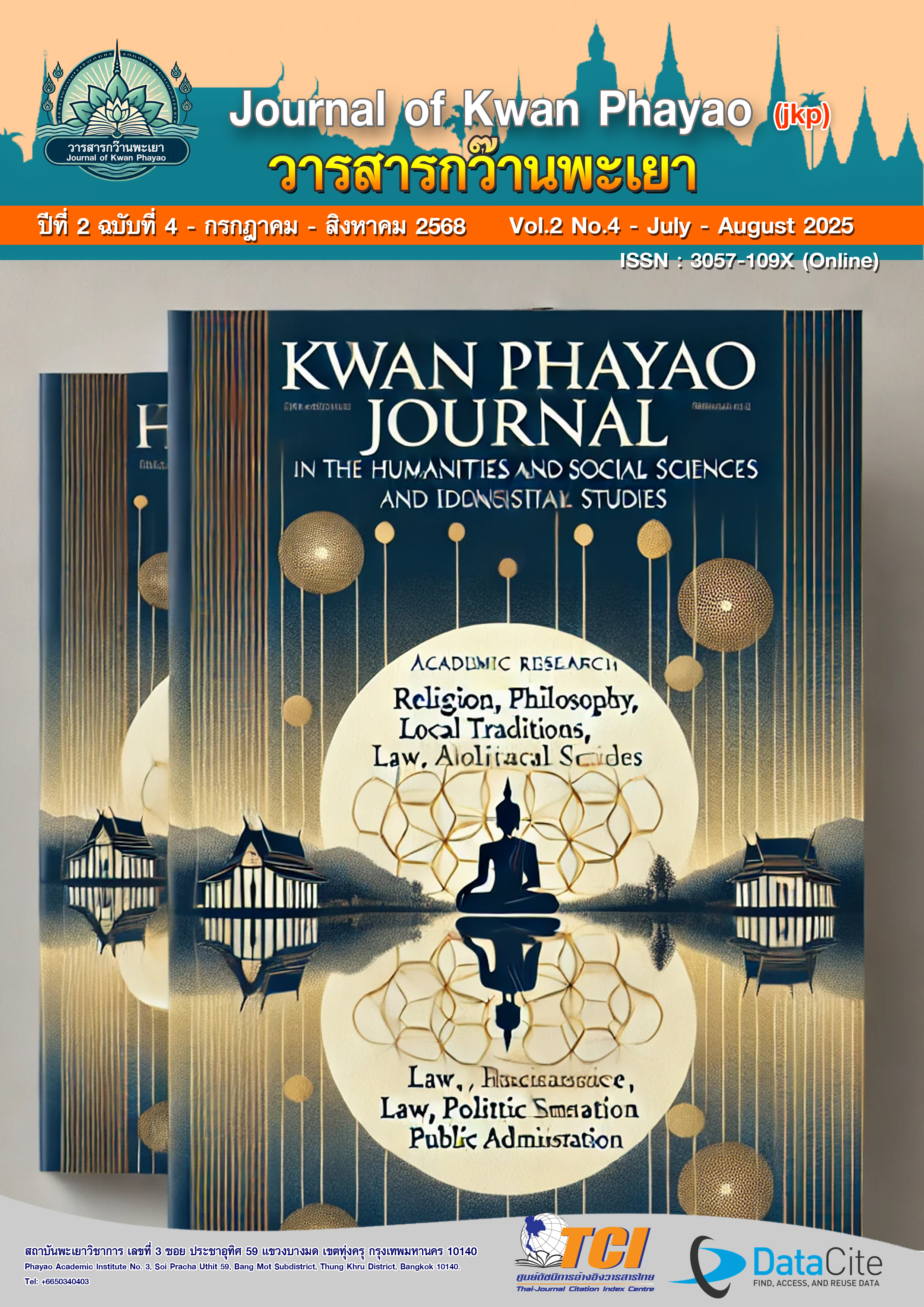INTEGRATING THE ARTIFICIAL INTELLIGENCE TOOL CHATGPT TO ENHANCE PARTICIPATORY LEARNING IN COMPUTER PROGRAMMING INSTRUCTION
Keywords:
ChatGPT, Computer Programming , Artificial IntelligenceAbstract
This study is a quasi-experimental research using a two-group pretest-posttest design. The objective was to examine the knowledge and skills in computer programming among students enrolled in the Bachelor of Business Administration program, majoring in Business Computer. Additionally, the study aimed to investigate the students' satisfaction with computer programming. The participants were 34 second-year students from the Bachelor of Business Administration in Business Computer program at an educational institution., each consisting of 17 students. Data were collected using a knowledge assessment form with a reliability coefficient of 0.86, and an evaluation form whose content validity was verified by the researcher, with a content validity index ranging from 0.67 to 1.00 and a reliability coefficient of 0.77, respectively. The data were analyzed using descriptive statistics, Chi-square test, and independent t-test.
The results revealed that after the experiment, the experimental group had a significantly lower mean knowledge score (Mean = 42.35, SD + 10.16) than the control group (Mean = 48.94, + 6.39), with statistical significance at the 0.05 level (p = .03). However, the experimental group had a significantly higher mean programming skill score (Mean = 67.82, + 5.16) compared to the control group (Mean = 48.64, SD + 6.37), with statistical significance at the 0.05 level (p < .001)
References
วศิน เพิ่มทรัพย์และโชควิศวโยธิน. (2566). ChatGPT AI ปฏิวัติโลก. กรุงเทพฯ: โปรวิชั่น.
Amity Solutions. (2023). Chat GPT คืออไร? 42 ข้อเท็จจริงที่คุณอาจไม่เคยรู้!. เรียกใช้เมื่อ 18 มิถุนายน 2567 จาก https://www.amitysolutions.com/
Johnson, D. W., & Johnson, R. T. (2009). An educational psychology success story: Social interdependence theory and cooperative learning. Educational Researcher, 38(5), 365–379.
Kasneci, E., Sessler, K., Küchemann, S., Bannert, M., Dementieva, D., Fischer, F., ... & Kasneci, G. (2023). ChatGPT for good? On opportunities and challenges of large language models for education. Learning and Individual Differences, 103, 102274.
Lahtinen, E., Ala-Mutka, K., & Järvinen, H.-M. (2005). A study of the difficulties of novice programmers. Proceedings of the 10th Annual SIGCSE Conference on Innovation and Technology in Computer Science Education, 14–18.
Luckin, R., Holmes, W., Griffiths, M., & Forcier, L. B. (2016). Intelligence unleashed: An argument for AI in education. Pearson Education.
Robins, A., Rountree, J., & Rountree, N. (2003). Learning and teaching programming: A review and discussion. Computer Science Education, 13(2), 137–172.
Wang,A. I, & Murdock,J. W.(2021). Artficial Intelligence in Education: A Systematic Review of Current Trends and Future Directions. Computers & Education, 176, 104340.
Wardat, Y., Tashtoush, M. ALAli, R, & Jarah, A. A. M. (2023). ChatGPT: A revolutionary tool teaching and leaming mathematics. Eurasia Joumal of Mathematics, Science and Technology Education, 19(7),em2286.
Zawacki-Richter, O., Marín, V. I., Bond, M., & Gouverneur, F. (2019). Systematic review of research on artificial intelligence applications in higher education—Where are the educators? International Journal of Educational Technology in Higher Education, 16(1), 39.




